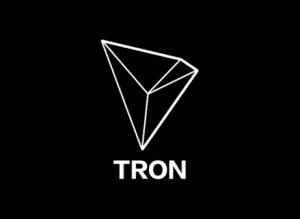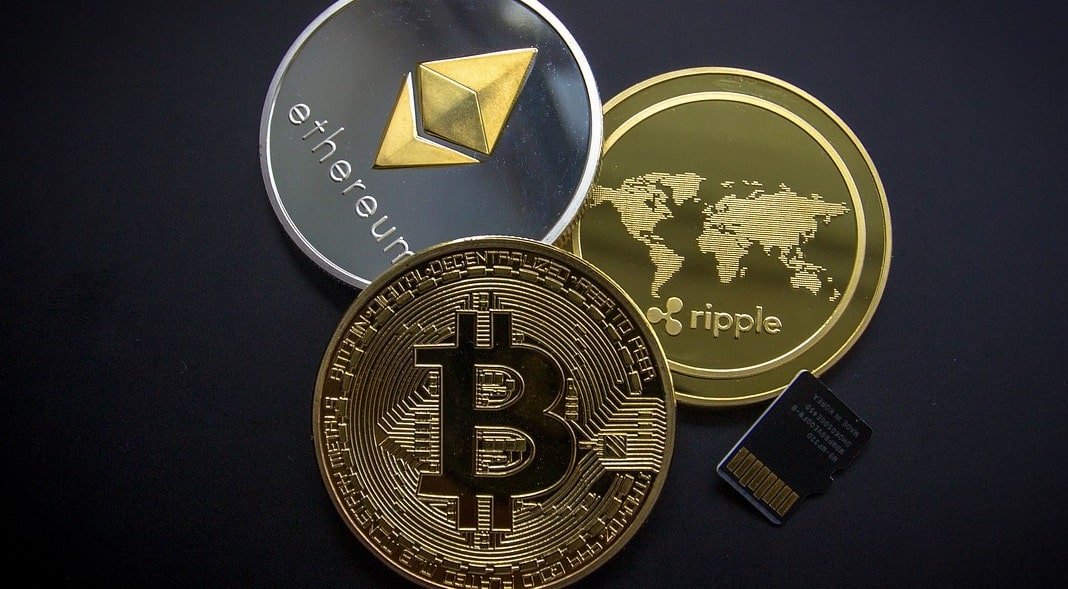The Multi-Billion Dollar Plagiarism Scandal
How to wipe way billions in gains...
 On Friday, January 5, Tron seemed to be on top of the world.
On Friday, January 5, Tron seemed to be on top of the world.
Riding high on a recommendation from John McAfee and rumors of an impending partnership with the Chinese online shopping giant Alibaba, their TRX cryptocurrency had risen to a value of $.25 USD giving it a market cap of $16.75 billion. That was enough to push it into the top ten cryptocurrencies in terms of market cap size.
But, by January 17th, that ride would be largely over. Down to just $.05 USD and a market cap of $3.1 billion, the coin had lost over 80% of its value and, though it rebounded some, it’s already lost that value as well.

What happened between those two dates is an interesting story. It involves a deal not coming to fruition, a major newspaper saying the currency doesn’t even exist, rumors of a cash out and two separate plagiarism scandals.
In what may be the most expensive plagiarism scandal I’m aware of, plagiarism allegations played a key role in knocking billions off the value of TRX and putting the coin in a position it may never recover from.
A Tale of Plagiarism and Bad PR
To be clear, there’s no one thing that caused TRX to lose so much value and, with cryptocurrency, these types of sudden rises and falls are fairly common. Still, the events that transpired between the 5th and 15th of January are well worth exploring, especially from a plagiarism standpoint.
That story begins on January 6th, when rumors began to swirl that TRON CEO Justin SUN had “cashed out” his TRX at the height of its value. The rumors started because users spotted large transfers of TRX in a name similar to Sun’s. Sun strongly denied those rumors saying that the trade was simply an early investor with the same name. Furthermore, Sun said that the goal of the transaction was not to sell TRX, but to “increase the liquidation” of the currency.
With confidence in the currency already shaken, the next hit would come on the 7th when Bedeho Mender, the founder of the Joystream BitTorrent client, tweeted allegations that TRON’s white paper copied heavily and without attribution from IPFS and Filecoin’s white papers.
This prompted Filecoin founder Juan Benet to conduct his own investigation, where he found that at least nine pages of Tron’s white paper were copied from other currencies’ white papers.
Wow! Absurd! TRON's "paper" is mostly copied from other projects, or is super basic p2p passed off as original. Zero references.
Archived that PDF in IPFS, in case they take it down: https://t.co/jv7EuSYenL pic.twitter.com/GbiL7MUrnc
— Juan Benet (@juanbenet) January 7, 2018
The copying wasn’t limited to just text or ideas. It also included specific code and equations that were used by other coins.
Sun responded quickly saying that it was a translation issue. According to him, the original white paper was written in Chinese and was translated into English by volunteers. According to Sun, those volunteers must have eliminated the citations.
However, the response and the removal of the white paper did little to quell the controversy. The flames of the story were fanned when Litecoin creator Charlie Lee retweeted the story to his 657,000 Twitter followers, prompting Sun to reach out to him directly.
So I got a lot of hate for my TRON retweet. Shows that there are A LOT of $TRX bagholders. If you really believe in the project, some FUD is only a speed bump. When you are a top10 coin, you need to be able to survive some FUD.
These tweets help me block haters from my feed.😁
— Charlie Lee Ⓜ️🕸️ (@SatoshiLite) January 8, 2018
I agree with you @SatoshiLite. A great project needs to be able to survive some FUDs. We accept constructive criticism and advice. You are a crypto pioneer and I am sure #TRON learns from #litecoin. We can collaborate and make the crypto world better! https://t.co/oMWYRv2esK
— H.E. Justin Sun 孙宇晨 (@justinsuntron) January 8, 2018
As the plagiarism controversy continued to percolate, on January 10th Sun announced a major partnership for TRON, saying it was going to team with Baofeng, a company it likened to “Chinese Netflix”.
While the announcement could have been a potential boon for TRON and TRX, there were two problems with it. First, there had been rumors swirling that TRON was going to partner with Alibaba, meaning this partnership was already a disappointment. Second was that the partnership was not with Baofeng, but Baofengs Blockchain Consensus Network (BCN), a division that’s separate from Baofeng’s video services.
But the bad press simply kept coming as, on January 12th, the Washington Post ran a report critical of cryptocurrency, calling it a “joke” and a “bubble”, that had some especially harsh words for TRON.
That’s the cryptocurrency that’s valued at over $7 billion even though it doesn’t actually exist. It’s just a white paper filled with a bunch of buzzwords.
The passage referenced the fact TRON, as of this writing, has not publicly launched. Though the coins are available and can be traded, the first beta isn’t scheduled to be released to the public until March 31.
However, the hits kept coming as, on January 14th, Mender once again took to Twitter to accuse TRON of plagiarism, this time over their Java implementation. According to Mender, TRON violated EthereumJ’s open source license by copying code without providing proper citation. EthereumJ is a Java implementation for Ethereum, yet another competing currency.
.@justinsuntron why does your #TRON Java implementation copy Ethereumj from @ethereumproject, and again, not give any attribution? thereby also violating LGPL? Let me guess, as with whitepaper, the Chinese version of the source does not do this?https://t.co/7vKSVfXYcZ pic.twitter.com/6u2s6OfSmP
— Bedeho (@bedehomender) January 15, 2018
The copying was actually noticed first on December 31st in TRON’s GitHub. However, at the time, it only received a brief response from the TRON Foundation, which promised to correct it. However, as the attention on the issue began to grow, the thread’s activity began to take off with the TRON Foundation making another official statement on the 14th.
There, they said that the TRON system is “Based on its own system and realization of codes,” but that some outside sources were used as reference. They said that they did not note the license and promised to fix it moving forward.
Still, the damage had been done. Though TRON has made it clear that it’s moving forward, and even gotten some favorable press since then, the coin hasn’t recovered any of its value and, as of this writing, is still trading below $.05.
As for Sun, his strategy for moving forward was actually outlined in a January 10th tweet during the height of the coin’s troubles. It simply reads:
What’s the best way to clear all FUDs? More partnerships, more developers, more exchanges and more efforts! #TRON #TRX $TRX
— H.E. Justin Sun 孙宇晨 (@justinsuntron) January 10, 2018
However, the viability of that strategy remains to be seen.
Why Plagiarism Matters
This plagiarism story is somewhat unique in that there’s no court case determining copyright infringement, no academic tribunal revoking degrees or any other kind of oversight.
Instead, this is a plagiarism story purely about trust, specifically public trust.
Cryptocurrency, though originally envisioned as a decentralized currency, is now seen as an investment but one with great risks. Various currencies are known to gain and lose value very quickly, so much so that Valve no longer accepts payment in Bitcoin.
What this means is that the value of a particular coin is largely based on how confident people feel about it. However, trust is very difficult for a new currency to earn. With so many new currencies competing for attention, it’s difficult for any new one to stand out, let alone build a brand that buyers feel comfortable investing in.
However, TRON had something of a leg up. The rumors about an Alibaba partnership and the mention from John McAfee not only put it front and center, but gave people a reason to believe in it.
Unfortunately, the rumors of cashing out, the blockbuster deal not happening and two significant plagiarism stories completely eliminated that trust.
Whether you, like The Next Web, blame the downfall largely on bad PR, pin it on plagiarism or poor management, the wounds are all almost entirely self-inflicted. Though Sun is quick to blame FUD (fear, uncertainty and doubt) for TRON’s problems, it’s not FUD if it’s coming from within.
TRON messed up and, if it wants to move forward, it has to rebuild its trust. Unfortunately, that is going to be very difficult, with headlines about plagiarism, misleading deals and even not being real dominating the news.
It’s not to say TRON and TRX can’t recover, it’s just going to be nearly impossible in the increasingly skittish world of cryptocurrency investing.
Bottom Line
Plagiarism doesn’t just matter because of the attribution that’s being denied the original creator(s). It’s also about the lie that’s being told to the audience.
When you present something as your own work when you did not create it or significant parts of it, it is a lie. This reflects badly on your character and hurts the ability of others to trust you. Even if the lie is unintentional, it still points to sloppy work, which still harms trust.
While trust is extremely important in every line of work, it’s difficult to think of a loss of trust is more profoundly felt than cryptocurrency investing.
So please, if you are planning on launching your own cryptocurrency, make sure your white paper isn’t plagiarized (in any language) and that your code has all the needed citations. There are enough challenges to earning trust in the market without self-inflicted wounds.
TRON and TRX should be a lesson for others in this field about the dangers of plagiarism and the lost of trust it can bring.
Want to Reuse or Republish this Content?
If you want to feature this article in your site, classroom or elsewhere, just let us know! We usually grant permission within 24 hours.
